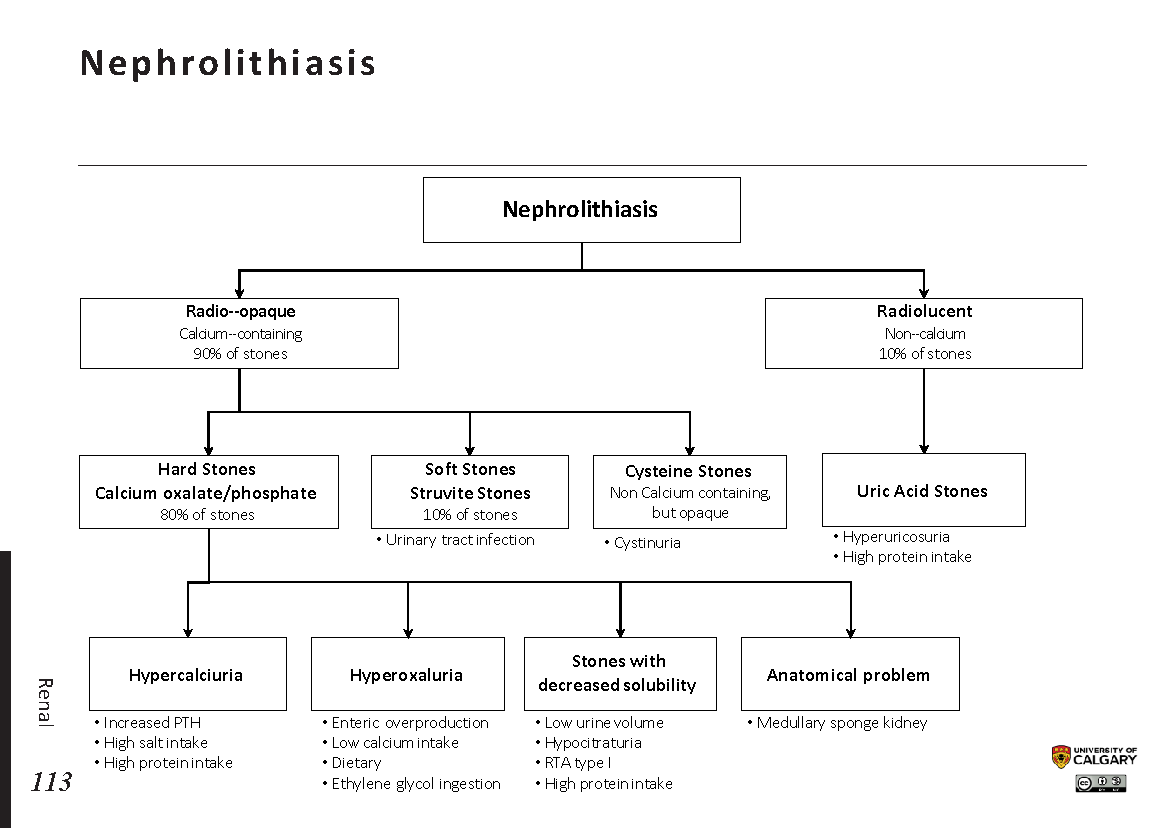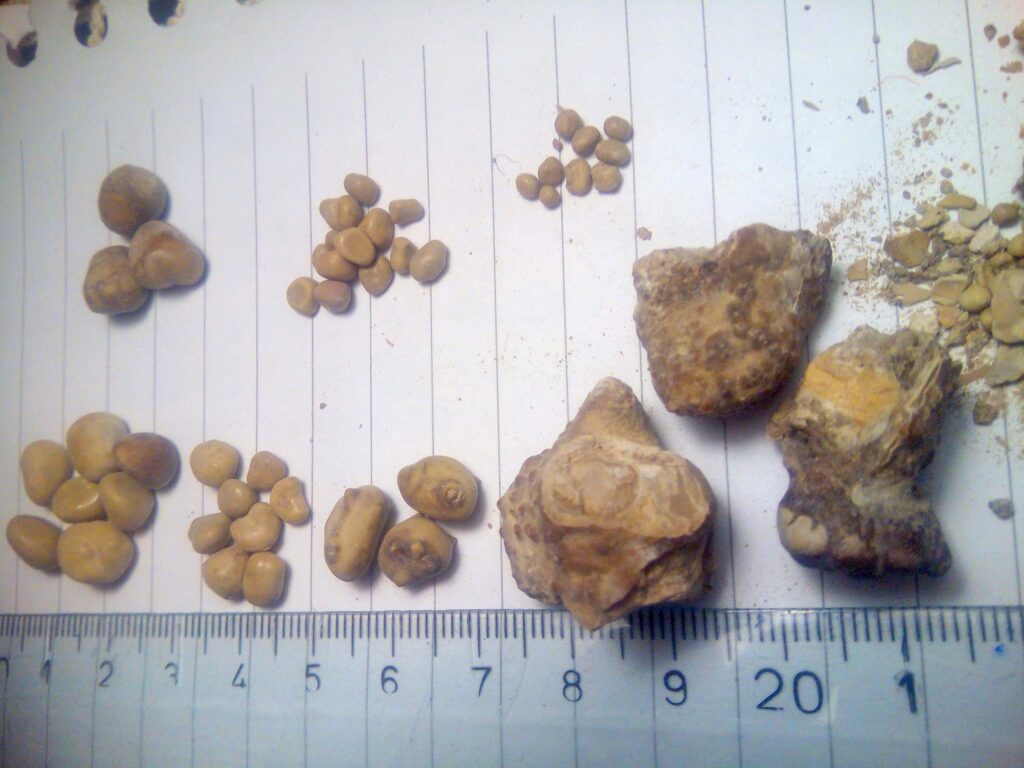Kidney stones, also known as renal calculi, are solid masses made of minerals and salts that form inside the kidneys. These stones can cause severe pain and discomfort when they pass through the urinary tract. In this article, we will explore the causes, types, symptoms, and treatments associated with kidney stones to help you better understand this common health issue.

What Are Kidney Stones?
Kidney stones are hard deposits that form in the kidneys when there is an excess of certain substances in the urine. These substances include calcium, oxalate, uric acid, and cystine. When these substances become concentrated, they crystallize and stick together, forming stones. The size of kidney stones can vary from as small as a grain of sand to as large as a golf ball.
How Common Are Kidney Stones?
- Kidney stones affect approximately ten percent of the population at some point in their lives.
- Men are more likely to develop kidney stones than women.
- The likelihood of developing kidney stones increases with age, particularly after the age of forty.
Causes of Kidney Stones
There are several factors that contribute to the formation of kidney stones. Understanding these causes can help individuals take preventive measures to reduce their risk.
Dehydration
One of the primary causes of kidney stones is dehydration. When the body does not receive enough fluids, the urine becomes concentrated, increasing the likelihood of stone formation. Drinking plenty of water throughout the day is essential for maintaining proper hydration and reducing the risk of kidney stones.
Dietary Factors
Certain foods and dietary habits can increase the risk of developing kidney stones. These include:
- Consuming high levels of sodium, which increases the amount of calcium in the urine.
- Eating foods rich in oxalate, such as spinach, nuts, and chocolate.
- Excessive intake of animal protein, which can raise the level of uric acid in the body.
Medical Conditions
Some medical conditions can predispose individuals to kidney stones. These include:
- Gout, a type of arthritis caused by high levels of uric acid.
- Inflammatory bowel disease, which affects nutrient absorption and increases oxalate levels.
- Hyperparathyroidism, a condition where the parathyroid glands produce too much hormone, leading to high calcium levels in the blood and urine.
Family History
A family history of kidney stones can increase an individual’s risk. If a close relative has had kidney stones, there is a higher chance that others in the family may develop them as well.
Types of Kidney Stones
There are several types of kidney stones, each formed from different substances. Identifying the type of stone is crucial for determining the appropriate treatment and prevention strategies.
Calcium Stones
Calcium stones are the most common type of kidney stones. They are typically composed of calcium oxalate but can also contain calcium phosphate. Calcium stones often form when there is too much calcium or oxalate in the urine.
Uric Acid Stones
Uric acid stones form when the urine is too acidic. This type of stone is more common in individuals who consume a diet high in animal protein or who suffer from gout. Uric acid stones may also occur in people undergoing chemotherapy.
Struvite Stones
Struvite stones are less common and usually form as a result of urinary tract infections. These stones can grow quickly and become quite large, sometimes causing damage to the kidneys if not treated promptly.
Cystine Stones
Cystine stones are rare and occur in people with a genetic disorder called cystinuria. This condition causes the kidneys to excrete excessive amounts of certain amino acids, leading to stone formation.
Symptoms of Kidney Stones
The symptoms of kidney stones can vary depending on the size and location of the stone. Some individuals may experience no symptoms at all, while others may have severe pain and other complications.
Pain
Pain is one of the most common symptoms of kidney stones. The pain is often felt in the back or side, below the ribs, and may radiate to the lower abdomen and groin. The intensity of the pain can fluctuate as the stone moves through the urinary tract.
Blood in Urine
Many people with kidney stones notice blood in their urine, which can range from pink to red or brown. This occurs when the stone irritates or damages the lining of the urinary tract.
Frequent Urination
Individuals with kidney stones may feel the need to urinate more frequently than usual. This symptom is often accompanied by a burning sensation during urination, which can indicate an infection.
Nausea and Vomiting
The intense pain caused by kidney stones can lead to nausea and vomiting. These symptoms are often a result of the body’s response to the pain and discomfort.
Fever and Chills
If a kidney stone leads to an infection, fever and chills may occur. This is a serious condition that requires immediate medical attention.
Treatments for Kidney Stones
The treatment for kidney stones depends on the size, type, and location of the stone, as well as the severity of the symptoms. In many cases, small stones can pass naturally, but larger stones may require medical intervention.
Hydration
Drinking plenty of water is one of the simplest and most effective ways to help pass small kidney stones. Staying hydrated helps flush out the urinary system and may prevent the formation of new stones.
Pain Relief
Over-the-counter pain relievers, such as ibuprofen or acetaminophen, can help manage the pain associated with kidney stones. In severe cases, prescription pain medications may be necessary.
Medications
Doctors may prescribe medications to help pass kidney stones more easily. For example, alpha-blockers relax the muscles in the ureter, allowing the stone to pass with less pain. Other medications may be used to dissolve specific types of stones, such as uric acid stones.
Extracorporeal Shock Wave Lithotripsy
Extracorporeal shock wave lithotripsy is a non-invasive procedure that uses shock waves to break kidney stones into smaller pieces. These smaller fragments can then pass more easily through the urinary tract.
Ureteroscopy
Ureteroscopy is a minimally invasive procedure where a thin tube equipped with a camera is inserted into the urethra and guided to the stone. The stone is then removed or broken into smaller pieces using a laser.
Percutaneous Nephrolithotomy
Percutaneous nephrolithotomy is a surgical procedure used for larger stones that cannot be treated with other methods. A small incision is made in the back, and a nephroscope is used to remove the stone directly from the kidney.
Preventing Kidney Stones
While not all kidney stones can be prevented, certain lifestyle changes can significantly reduce the risk of developing them. These include:
- Staying well-hydrated by drinking plenty of water throughout the day.
- Limiting sodium intake to reduce the amount of calcium in the urine.
- Reducing consumption of foods high in oxalate.
- Maintaining a balanced diet and avoiding excessive animal protein.
- Regularly monitoring and managing underlying medical conditions.
Regular Check-Ups
Individuals with a history of kidney stones should schedule regular check-ups with their healthcare provider. Routine monitoring can help detect potential issues early and allow for timely intervention.





